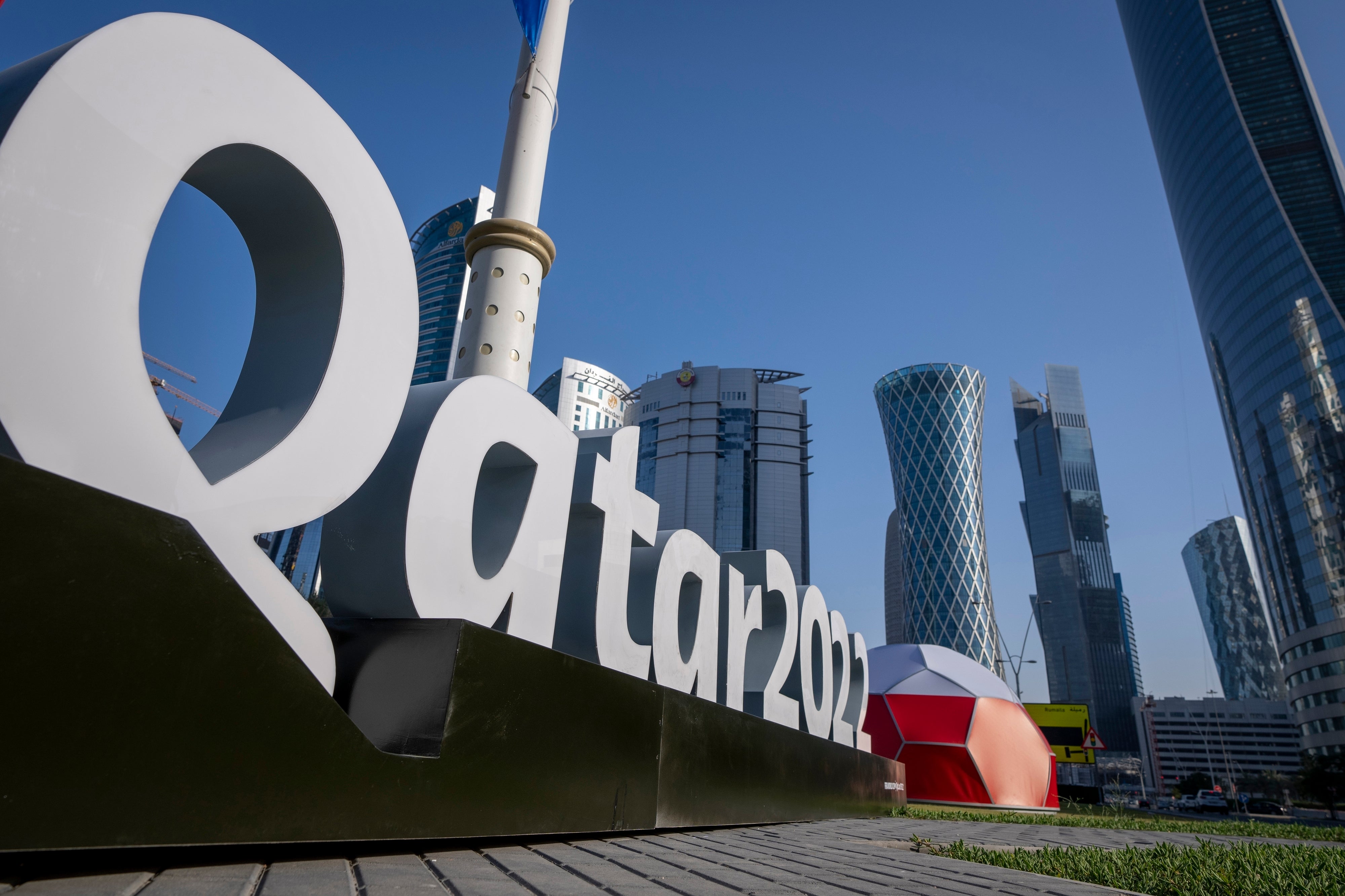Qatar accused of beatings and abuse of LGBT+ people weeks ahead of World Cup
The Fifa Men’s World Cup starts next month

World Cup host Qatar has been accused of arbitrarily arresting LGBTQ+ people and subjecting them to ill treatment in detention.
Human Rights Watch says it has documented six cases of Qatar’s Preventive Security Department forces, part of the country’s interior ministry, issuing severe and repeated beatings and five cases of sexual harassment taking place as recently as September 2022.
The incendiary findings – denied by the Qatari government – come as Doha prepares to host the 2022 Fifa Men’s World Cup, despite extensive criticism of its government’s mistreatment of LGBTQ+ people.
The World Cup starts on 20 November.
The serious allegations against the security forces, which date back to 2019, include arresting people in public places based solely on their gender expression, and unlawfully searching their phones.
As a requirement for their release, Human Rights Watch said transgender women detainees were forced to attend conversion therapy sessions at a government-sponsored “behavioural healthcare” centre.
Rasha Younes, LGBT rights researcher at Human Rights Watch, said: “While Qatar prepares to host the World Cup, security forces are detaining and abusing LGBT people simply for who they are, apparently confident that the security force abuses will go unreported and unchecked.
“Qatari authorities need to end impunity for violence against LGBT people. The world is watching.”
HRW compiled its allegations by interviewing six LGBTQ+ Qataris, including four transgender women, one bisexual woman, and one gay man.
All six interviewees said the security officers had detained them in an underground prison in the Qatari capital.
While at the institution, located in Al Dafneh, Doha, the interviewees said they were subjected to physical abuse, ranging from slapping to kicking and punching until they bled or, in the case of one woman, lost consciousness.
Security officers also inflicted verbal abuse, extracted forced confessions, and denied detainees access to legal counsel, family, and medical care, the NGO claimed.
All six said that police forced them to sign pledges indicating that they would “cease immoral activity”.
One transgender interviewee told Human Rights Watch that after security forces arrested Doha, they accused her of “imitating women”. Once inside the police car, she said they beat her until her lips and nose were bleeding and kicked her in the stomach, she said.
“You gays are immoral, so we will be the same to you,” she said one officer told her.
A Qatari bisexual woman said that the Preventive Security officers had beat her until she lost consciousness “several times”.
All six interviewees described security officials forcing them to unlock their phones and took screenshots of private pictures and chats from their devices, as well as contact information of other LGBTQ+ people.
Human Rights Watch is now calling on Qatari security forces to end arrests for “adult, consensual sexual relations, including same-sex conduct, or those based on gender expression, and immediately release LGBT people who remain arbitrarily detained”.

Ms Younes said: “The Qatari government should call an immediate halt to this abuse and Fifa should push the Qatari government to ensure long-term reform that protects LGBT people from discrimination and violence.”
However, a Qatari official said the “allegations contain information that is categorically and unequivocally false”.
The official said: “Qatar does not tolerate discrimination against anyone, and our policies and procedures are underpinned by a commitment to human rights for all.
“Despite the Qatari government’s commitment to engage with Human Rights Watch and other critical groups, the claims were not brought to our attention until they were first reported in the media. If Human Rights Watch had contacted us, we would have been able to disprove the allegations.
“The Qatari government does not operate or license any ‘conversion centres’. The rehabilitation clinic mentioned in the report supports individuals suffering from behavioural conditions such as substance dependence, eating disorders and mood disorders, and operates in accordance with the highest international medical standards.
“We understand the role of Human Rights Watch to apply pressure on these topics, but their decision to release demonstrably false information, without first contacting our government to verify the findings and better understand Qatar’s policies and standard procedures, compromises their self-proclaimed commitment to reporting the truth.”






Join our commenting forum
Join thought-provoking conversations, follow other Independent readers and see their replies
0Comments